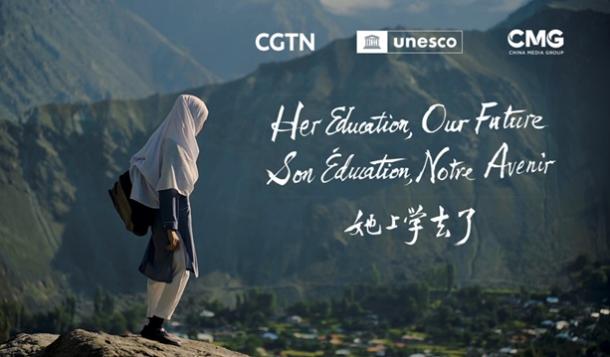Investing in Girls’ and Women’s Education: New Resources from UNESCO
By Quentin Wodon
April 4, 2024
Quentin Wodon is Director of the UNESCO International Institute for Capacity Building in Africa.

Promoting gender equality and girls’ and women’s education is a priority for UNESCO IICBA. Among others recent activities, IICBA launched at the end of January a conference edition of the first Africa Teachers Report on the role of teachers and school leaders in educating girls and ending child marriage. Together with FAWE and UNICEF ESARO, IICBA has finalized a self-paced eLearning course on gender-responsive pedagogy. And we just launched a new two-year project on girls’ education in West Africa with support from the Government of Japan.
Gender equality and girls’ education are also priorities for UNESCO overall. New resources were made available in this area last month in celebration of International Women’s Day. Below are edited excerpts from a message shared by the UNESCO Section of Education for Inclusion and Gender Equality outlining these new resources.
Documentary Her Education, Our Future
Produced by CGTN in partnership with UNESCO, the documentary tells the story of four girls on three continents - Anee from Pakistan, Mkasi from Tanzania, and Fabiana and Tania from Brazil – who benefited from programs aimed at widening their access to education, enhancing their skills for life and work and expanding their educational and career opportunities. The film is free to view on YouTube in English, French and Chinese. The social media pack is here. You may also be interested in a fireside chat between Fabiana and UNESCO's Assistant Director-General for Education at the premiere of the documentary. At the time of filming, Fabiana was a high school student in rural Brazil and a participant in the UNESCO EDUCASTEM2030 program which aims to close the gender gaps in STEM education. She is now an engineering student. Also available is a photo essay featuring all four girls in the film.
UNESCO Prize for Girls' and Women's Education 2024
The UNESCO Prize for Girls' and Women's Education 2024 call for nominations is now open. The Prize awards US$ 50,000 annually to two laureates making outstanding efforts in favor of girls’ and women’s education. If you know an exceptional program, organization, or individual that is empowering girls and women in and through education, please consider nominating them. Nominations can be made by Governments of UNESCO Member States or Non-governmental organizations (NGOs) in official partnership with UNESCO. Social media messaging is available in all 6 UN languages here. For any questions, please send an email to GWEPrize@unesco.org.
New publications
UNESCO published an updated #HerEducationOurFuture fact sheet entitled “Investing in girls' and women's education: A smart investment to accelerate development.” The data clearly demonstrates the large dividends that investment in girls’ education has generated over the past two decades. However, significant gender disparities persist in access, completion, skills, and the quality of education received. Find out more here. For analysis for Africa, please see our first Africa Teachers Report mentioned earlier.
Global Accountability Dashboard
The Global Platform for Gender Equality in and through Education's new Global Accountability Dashboard is a one-stop resource monitoring country progress against key indicators on gender- transformative education. It spotlights key actions taken by governments and their partners and provides an evidence hub of initiatives and good practices from 193 countries. Watch a 90-second video on the Global Platform and Dashboard.
Conclusion
Gender equality and educating girls and women is a priority for UNESCO IICBA and for UNESCO overall. At IICBA, we are actively working with the African Union’s the African Union’s International Centre for Girls’ and Women’s Education in Africa (AU/CIEFFA) on analytical work, projects on the grounds, and the preparation of the first Pan-African Conference on Girls’ and Women’s Education planned for May 2024 in Chad. If you would like to know more about our work on girls and women’s education, please do not hesitate to contact us.

